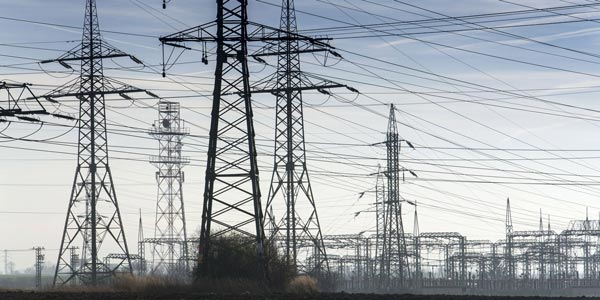By Wayne Barber
Electric infrastructure projects, even those that promote renewable power, are often stymied by federal regulatory reviews that seem to drag on forever, witnesses told the Senate Committee on Energy and Natural Resources on March 14.
Many speakers called for a single agency to play a lead role in infrastructure permits, that the Energy Department should continue to play the lead role in grid security, rather than the Department of Homeland Security. They also called for more firm deadlines for decisions.
No one witness or senator, however, seemed to offer a silver bullet solution on how to speed up license approvals.
When asked about memorandums of understanding (MOUs) between federal agencies, Jeffrey Leahey, deputy executive director of the National Hydropower Association, indicated they can be helpful, but often the real roadblocks can be found in regional offices, not D.C.
Currently most hydroelectric dams don’t actively generate electricity, Leahey told Murkowski. While the hydro association supports the FERC MOU to increase the number of power dams, it doesn’t go far enough, he said. (See FERC, Corps Agree to Streamline Nonfederal Hydro Permits.)
Dominion Energy CEO Diane Leopold said some agencies go “pencils down” until another agency finishes work. She said that Dominion has had a slow-go winning approval for the Surry-Skiffes Creek-Whealton transmission project in Virginia.
“The long-term nature of large energy projects and the millions in private dollars required to execute them demand regulatory predictability to proceed,” Leopold said. Surry-Skiffes Creek-Whealton “is a prime example of the costs of delay to our communities and our national security.”
The transmission investment became vital after Dominion determined that retirement was the best course of action for two aging coal units at the Yorktown power station, Leopold said. PJM recently offered the company a reliability-must-run agreement for the units. (See “PJM Offers Four RMR Contracts,” PJM Planning & Transmission Expansion Advisory Committee Briefs.)
Pacific Power CEO Stefan Bird stressed the need for the utility’s Energy Gateway project, which it has been working on since May 2007. Bird also made the case for a strong federal role in tree trimming for grid reliability.
The Senate session marked the first congressional hearing about infrastructure during this session. The Trump administration has promised to present Congress with a major infrastructure plan.
“I am glad that President Trump has made infrastructure a national priority,” Chair Lisa Murkowski (R-Alaska) said. “I look forward to working with him, his administration as well as other members of the Senate to develop a broad infrastructure package,” Murkowski said. “And I certainly hope that package will include provisions that streamline the permitting process for all energy infrastructure projects.”
She added that it should not take 10 years to merely renew a license for an existing hydroelectric power plant.
“As the first two installments of the Department of Energy’s Quadrennial Energy Review have pointed out, we are facing several challenges that threaten to disrupt American’s access to reliable and affordable energy,” ranking member Sen. Maria Cantwell (D-Wash.) said in her opening statement.
“Our hydroelectric dams, power plants, electric transmission lines and pipelines are aging. And the pace of investments has not always been sufficient to keep these facilities in good working order,” she said.




